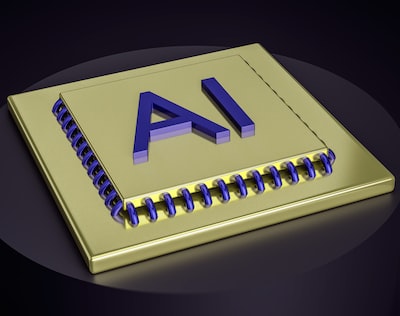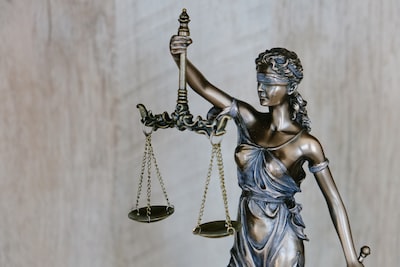In an era infused with technological advancements, it seems that artificial intelligence (AI) has infiltrated every corner of our lives. From self-driving cars to virtual assistants, our dependence on AI has grown exponentially.
However, one industry that has been slower to embrace this innovative technology is the legal industry. That is until now.
Enter AI-based surveillance, the latest addition to the ever-expanding toolkit of legal professionals. With its ability to analyze massive amounts of data, detect patterns, and predict outcomes, AI is revolutionizing the way lawyers investigate and build cases.
But what are the implications of this AI invasion for the legal profession? Will it augment or replace human lawyers? AI in the legal industry has ignited a fierce debate, raising questions about ethics, privacy, and the future of justice itself.
In the vast ocean of legal complexities, navigating the treacherous waters of litigation has become an arduous task, akin to traversing a labyrinth with twisted paths and unexpected dead ends. But fear not, for there emerges a guiding light amidst this legal darkness – the AI legal lighthouse.
Imagine a beacon of knowledge, an all-seeing sentinel that tirelessly scans mountains of legal documents, precedent cases, statutes, and regulations, absorbing and analyzing them with a tireless intensity that is beyond human capability. It is this technological marvel that has the potential to revolutionize the way legal battles are fought and won.
With its sophisticated algorithms and intricate machine learning techniques, the AI legal lighthouse can swiftly identify patterns, detect inconsistencies, and provide unparalleled legal research and analysis. Its ability to synthesize vast amounts of information, coupled with lightning-fast processing power, emboldens lawyers and litigators alike, arming them with an unprecedented advantage.
Skeptics argue that the infusion of artificial intelligence into the legal realm undermines the core essence of the legal profession – the human interpretation and application of the law. They worry that relying on machines could lead to unethical manipulation, biased outcomes, and a detachment from the fundamental principles of justice.
However, proponents of AI legal lighthouses argue that these concerns can be mitigated through rigorous oversight and accountability measures. By embracing this technological innovation while ensuring the preservation of legal integrity, the legal profession can transcend its limitations and take a leap into the future.
The AI legal lighthouse stands as a testament to human ingenuity, a testament that technology, when wielded responsibly and ethically, can be a powerful ally in the pursuit of truth, fairness, and justice. So, let the watchful sentry guide us through the turbulent seas of litigation with its luminescent wisdom, illuminating the way forward and forever changing the landscape of the legal realm.
Table of Contents
Introduction: The Rise of AI in Legal Systems
AI-powered solutions for law firms have brought about a seismic shift in the legal industry, transforming the way legal professionals operate and increasing efficiency. According to a recent study by McKinsey & Company, the adoption of artificial intelligence technology in law firms has the potential to increase productivity by up to 40%. However, as AI becomes more prevalent, there are concerns about privacy, security, and the potential for biases in decision-making algorithms.
As renowned legal scholar Prof. Ryan Calo warns, ‘We need guardrails to ensure that AI remains a tool for human judgment, not a substitute for it.
‘ Despite these challenges, AI has emerged as a watchful sentry, offering vast opportunities for legal systems to streamline processes, analyze vast amounts of data, and improve access to justice. With its ability to sift through countless documents, analyze patterns, and provide insightful recommendations, AI is poised to revolutionize the legal landscape.
As we embark on this new era of AI-powered legal solutions, it is imperative to strike the right balance between innovation and safeguards to ensure a just and fair legal system for all. [source]
Understanding the Role of AI in Legal Lighthouse
The legal world is evolving, and a new development has emerged: the AI legal lighthouse. As artificial intelligence gains prominence in the legal field, it serves as a vigilant guardian.
But what does this mean exactly? Essentially, the AI legal lighthouse acts as a guiding light, shedding light on the intricate complexities of the legal system to assist lawyers and judges in decision-making. By analyzing vast amounts of legal data, these intelligent algorithms can identify patterns, precedents, and predict outcomes accurately.
However, introducing AI into the legal domain raises its own questions. Can an algorithm truly understand human emotions and subtleties when making judgments? Are we sacrificing human judgment for the efficiency and speed of algorithms? While these concerns are valid, they must be weighed against the undeniable benefits that AI legal lighthouses bring to the legal profession.
Only time will reveal how this symbiotic relationship between humans and AI will unfold, but one thing is certain: the AI legal lighthouse is here to stay.
Enhancing Efficiency and Accuracy with AI Technology
AI technology in the legal system is revolutionizing legal proceedings. It can process data, analyze legal documents, and detect patterns, enhancing efficiency and accuracy in law.
AI helps lawyers with research, drafting, and due diligence, saving time and resources. It is reshaping the legal landscape by analyzing case precedents and predicting outcomes.
However, using AI in law raises ethical concerns like privacy and biased decision-making. A transparent and accountable framework is needed to regulate its use.
As AI evolves, it can bridge human judgement and machine precision, creating a more equitable and accessible legal system.
Addressing Ethical and Privacy Concerns of AI Implementation
Artificial intelligence (AI) has become a powerful tool across various industries, including the legal industry. AI has revolutionized how lawyers and legal professionals handle complex legal issues.
However, the integration of AI in the legal industry raises ethical and privacy concerns. AI algorithms have access to large amounts of personal data, which brings up questions about privacy invasion and data protection.
Additionally, the potential biases in AI systems can lead to unfair and discriminatory outcomes. To ensure an ethical and responsible implementation of AI in the legal industry, it is crucial to establish clear regulations and guidelines.
Challenges and Limitations of AI in Legal Decision-Making
In a world where technology is constantly changing industries, the legal sector is also going through a digital revolution. Artificial Intelligence (AI) is transforming how legal decisions are made.
AI can analyze large amounts of data and find patterns, making it a valuable tool in the legal world. However, there are challenges and limitations to consider.
AI cannot replicate human emotions and subjective interpretation, which are complex and difficult to mimic in machines. Additionally, relying solely on AI for legal decision-making raises ethical concerns about fairness and accountability.
As this technology evolves, it is important to find a balance between embracing its capabilities and safeguarding against its limitations. Exploring how AI is transforming the legal sector requires curiosity and caution.
The Future of AI in Shaping the Legal Landscape
Artificial Intelligence (AI) is increasingly shaping the legal landscape. Its importance in law cannot be emphasized enough.
AI can sift through large amounts of data, enabling lawyers to uncover valuable insights and make informed decisions. For example, AI algorithms can analyze contracts and legal documents, identifying risks and suggesting revisions.
Additionally, AI can streamline legal research, saving time and resources. As the legal field evolves, AI will likely play a significant role.
However, it also raises ethical concerns, particularly regarding data privacy and biases in AI algorithms. Therefore, it is crucial to find a balance between harnessing AI’s power and safeguarding individual rights.
AI presents a watchful sentry that could be vital in navigating the complex legal terrain ahead.
Cleanbox: Revolutionizing Email Organization and Security for Legal Professionals
Legal professionals often find themselves drowning in a sea of emails, with important information buried beneath a deluge of unimportant clutter. That’s where Cleanbox comes in, streamlining and safeguarding the email experience for lawyers and legal teams.
By harnessing the power of advanced AI technology, Cleanbox revolutionizes email organization and security. With its ability to sort and categorize incoming emails, legal professionals can focus on the priority messages that truly matter.
Cleanbox also acts as a virtual gatekeeper, warding off phishing attempts and protecting against malicious content that may pose a threat to sensitive legal information. Its intelligent algorithms adapt and learn, ensuring that legitimate emails aren’t wrongly flagged and that vital communications always stand out.
With Cleanbox, legal professionals can declutter their inboxes and boost productivity, saving valuable time and effort in the process. It’s a game-changer for lawyers seeking greater efficiency in the age of email overload.
Frequently Asked Questions
An AI Legal Lighthouse refers to a system that uses artificial intelligence technology to monitor legal compliance and identify potential risks in an organization.
An AI Legal Lighthouse works by analyzing large amounts of data, including laws, regulations, and legal documents, to identify patterns and potential legal risks. It uses machine learning algorithms to continuously learn and improve its analysis capabilities.
Using an AI Legal Lighthouse can help organizations ensure legal compliance, reduce legal risks, and improve decision-making processes. It can also save time and resources by automating legal research and analysis.
An AI Legal Lighthouse can identify various legal risks, including non-compliance with laws and regulations, potential contract breaches, intellectual property violations, and privacy and data protection issues.
An AI Legal Lighthouse is not intended to replace human legal professionals. Instead, it serves as a valuable tool to assist legal professionals in their work by automating repetitive tasks, providing insights, and flagging potential risks.
Any industry that requires legal compliance and faces potential legal risks can benefit from an AI Legal Lighthouse. This includes industries such as finance, healthcare, technology, and manufacturing.
The Long and Short of It
In conclusion, AI-based surveillance is presenting legal professionals with both opportunities and challenges in their daily work. With advanced technologies, lawyers can now sift through enormous amounts of data, increasing their efficiency and accuracy in their investigations.
However, the ethical implications and potential invasion of privacy that come hand in hand with this innovation cannot be dismissed. As we delve deeper into a world where machines make decisions on our behalf, it becomes crucial to strike a balance between utilization and safeguards.
The legal field must adapt to the evolving landscape of AI, ensuring that its use remains transparent, accountable, and respectful of individual rights. Only then can we fully embrace the potential benefits this technology holds while upholding the principles that underpin our justice system.
The future of AI-based surveillance in the legal profession is a complex web that demands both vigilance and thoughtful implementation.







 in Wyoming
in Wyoming